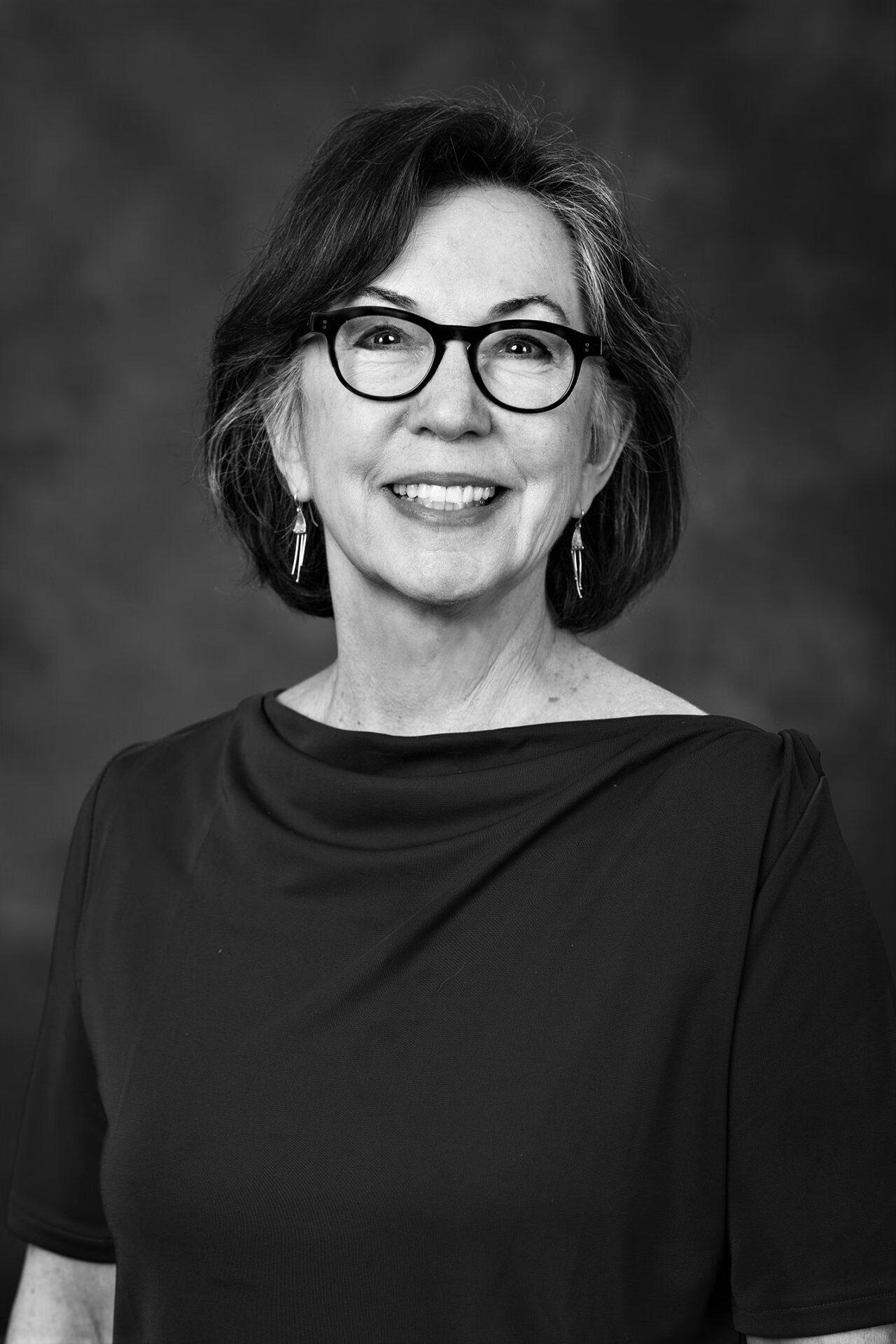The latest interview in the Ole Miss Retirees features Deborah Bell. The organization’s mission is to enable all of the university’s faculty and staff retirees to maintain and promote a close association with the university. It is the goal of the Ole Miss Faculty/Staff Retirees Association to maintain communication by providing opportunities to attend and participate in events and presentations.
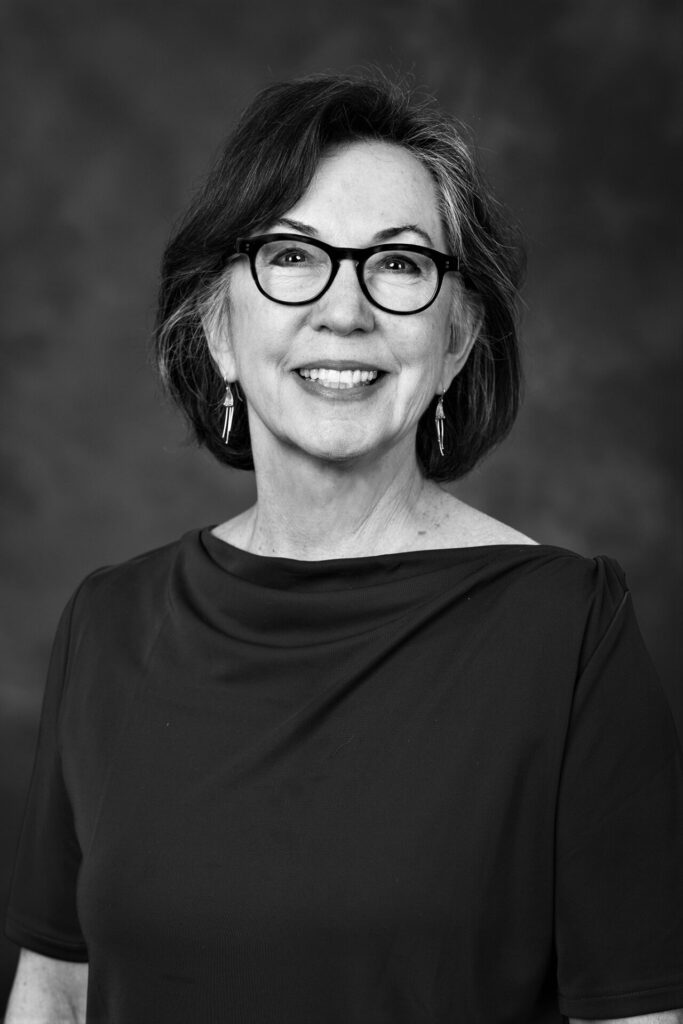
Deborah Bell is Delta-born and has achieved much success while maintaining her strong Mississippi roots. She has received many awards and accolades and continues to teach even in retirement. She is the founder of the University of Mississippi Law School’s Civil Legal Clinic and the founder of the UM Pro Bono Initiative. She also did a stint as the Interim Dean.
Brown: You grew up in Indianola, Mississippi. What was special about that place and your childhood in the Delta?
Bell: My childhood home was on a farm in a thinly populated area of Sunflower County. My grandparents on both sides lived in rural areas. Some of my fondest memories are of spending time outside, in trees and on bayous, playing in farm outbuildings – barns, seed houses, and cotton gins. I love the solitude of the country. The impact of that setting on my preferences is obvious today – I live on an old farm place in Lafayette County with only a few neighbors. I still love the solitude, even though town is a lot closer than it was 30 years ago when I moved here.
Brown: Please tell us about your parents, siblings, and any crazy aunts and uncles.
Bell: My parents raised five children. I am the oldest – my youngest brother, Will, is 17 years younger than I am. In between, my brother Max, three years younger, and his wife Carrie, live on our old farm place, in the home our grandparents lived in. He is a woodwork artist, can fix anything, and delivers mail as a rural route postman. My next sister, Helen, lives in Indianola and with her husband, Michael, owns the popular Delta clothing store Abrahams. I tell people going to Abrahams to look for someone who looks like me but ten years younger and much better accessorized. My next sister Cheryl co-owns the Memphis gem of a bookstore, Burke’s, with her husband, Corey Mesler. We were a family of readers – Cheryl took that love to its logical conclusion. Will, the youngest, lives in Dallas with his wife Kim and four children, where he plays in a band, inspects houses, and raises goats. We are a big family. My siblings and their families get together at my house every July 4th – at last count there were 43 of us.
My great-grandmother, Bessie Lee Morrow, for whom I am named (Debbie Lee Hodges Bell) was an important figure in my childhood. When I was young, she lived in an old home with no running water. She cooked the best cathead biscuits I’ve ever had on a wood burning stove. I loved going with her into her garden (she dressed in a long dress, apron, and bonnet) so much that I built a stick fence garden modeled on hers. I grow tomatoes, cucumbers, squash, zucchini, okra, sunflowers, and zinnias, but not as well as she did.
Brown: What qualities did you admire most about your parents?
Bell: I never saw them be unkind to each other or to any of their children. They believed in us and regularly told us so. My sister Cheryl points out that they did such a good job that we each believed we were their favorite. They lost our farm when they were in their early 50s, after borrowing to expand the farm just before interest rates skyrocketed to unprecedented levels. They went from having a well-to-do life to cutting coupons and counting pennies. When my mother took a temporary job at minimum wage, she told me that this was an adventure – they had probably gotten too comfortable. I will always admire their determination to make the best of whatever came their way.
Brown: Where did you go to school?
Bell: I attended high school at Indianola Academy, graduating in 1971, and went to Mississippi College (MC). It was an interesting time, attending college at a religious school in the early 1970s. MC still had fairly restrictive rules for women then, and it did not sit well with me. My poorly planned response to being told that men could smoke and women couldn’t was to buy my first pack of cigarettes (it was a short-lived habit). But it was a wonderful liberal arts education that I deeply appreciate.
Brown: What was your favorite/least favorite subject in school and why?
Bell: English. I started writing poetry (badly) and short stories in the second grade. I’m sure they were all obvious knock-offs of my favorites. I learned to write from an amazing high school teacher, Evelyn North, whose critiques and encouragement still echo in my head. Least favorite: sciences. I could memorize the concepts enough to get by but had no real understanding of scientific principles.
Brown: What school activities and sports did you participate in?
Bell: Debate, school government, newspaper, and the annual. My family were readers, not athletes. To this day, the activities and exercise I enjoy NEVER involve a ball.
Brown: When asked what you wanted to be when you grow up, what was your response?
Bell: I don’t know that I had one. The Mississippi Delta in the 1960s was not a society that focused much on what women would become. I’m not sure I thought much about it until I was in college.
Brown: What was your first job perhaps as a teen? What were your responsibilities and how much were you paid?
Bell: I babysat. There was always a child of babysitting age in our house. I was paid with my parents’ gratitude mostly! I didn’t have a paid job until I was in college, doing work study.
Brown: What are some memories about your high school years?
Bell: Driving through the Delta to dances. We would drive from Indianola to Drew, Ruleville, Greenville, Greenwood, Belzoni, to dances. We got to know people across the area. I remember one night driving to Drew on a double date. When we arrived, we heard noises from the trunk of the car. Two guys who wanted to go to the dance had ridden in the trunk, afraid that the girls in the car would veto their going on the date with them.
More seriously, I remember realizing when I was sixteen (embarrassingly late, given the events of the 60s) that segregation was wrong. I had grown up in the segregated south. My parents didn’t talk much to us about what was happening and we didn’t watch much news about it. I remember sitting with my boyfriend at dinner in the Holiday Inn at Greenville, voicing for the first time to anyone my belief that things had to change. It was 1969. I wish I had paid attention earlier.
Brown: Describe yourself as a young adult.
Bell: Earnest. I was in law school in my early twenties. I took it very seriously, worked most of the time, and didn’t play much. I got less serious as I got older. After law school, I clerked for a federal judge, Elbert Tuttle, Sr., in Atlanta and then worked for the Atlanta Legal Aid Society doing work on housing cases. That was such an exciting time to be working on housing, with important changes in the legal rights of tenants.
Brown: Did you have a mentor who influenced your career choice?
Bell: Not a mentor, but a friend – Dave Bell. He was four years ahead of me and in law school while I was in college. He was a strong influence on my choice to go into law, one I have never regretted.
Brown: Tell us how/when your Ole Miss “story” began? Who hired you? How long did you work at Ole Miss?
Bell: I had planned to go to law school at Mississippi College. Dave and I lived in Jackson. He had a job there. We went to Oxford to visit his law school professor, George Cochran, who convinced me to come to Ole Miss. After law school, I was in Atlanta for two years and then was hired by Dean Parham Williams to teach. I’ve been on the faculty since I was 27.
Brown: Talk about your interview for the job at Ole Miss.
Bell: I remember feeling awkward interviewing for a job with people who had been my professors two years earlier. It took me years to call some of them by their first names!
Brown: What were some of your job responsibilities?
Bell: I started teaching Commercial Law – Sales, Secured Transactions, Negotiable Instruments – because that was what was needed. I also got to teach (at my request) Housing Law and Poverty Law. After a few years, I picked up Property as a primary course. George Cochran (again) convinced me that I would have more credibility as a housing law expert if I was known as a Property professor. I taught property for almost twenty years. In the early 90s, I started our civil clinical programs, including a Domestic Violence Clinic. That led to an interest in Family Law, which has been my primary area of focus since then. It is fascinating – the area of law where people’s private lives most intersect with the law. It’s never dull. And always messy.
Brown: You served as the Interim Dean of the Law School from 2015-2017. Please tell us about this experience.
Bell: It was definitely a stretch for me. I told Morris Stocks “no thanks” several times before I agreed. He is a convincing man! I am so glad I did. I reconnected with a lot of former students, learned a lot about management, and gained a much greater appreciation for the wonderful Law School staff.
Brown: What were the positive aspects of being Dean of the Law School?
Bell: I was surprised how much I enjoyed promoting the Law School, talking to alumni about our programs and meeting with prospective students. It made me realize how proud I am of the program.
Brown: What were some of the more challenging aspects of being Dean of the Law School?
Bell: Financially, it was a difficult time for law schools. Enrollment was down nationally. It was a challenge to assess where we could save without affecting our core programs. But we weathered that and, I understand, enrollment is significantly up these days!
I am so grateful to have spent my career at the UM School of Law, with colleagues I value dearly, students that inspired me to work harder, many who became lifelong friends, and work that I enjoyed every day. Clinical teaching was particularly rewarding. I loved being able to work as a partner with students on cases and projects.
Brown: Your husband Neil White is a successful author and owns a publishing company. Tell us how you all met.
Bell: We met at St. Peter’s Episcopal Church in the parish hall. I asked my friend, Linda Peal, if she knew anyone who could produce a brochure for me. She said, “Sure – my ex-husband, Neil White!” and introduced us.
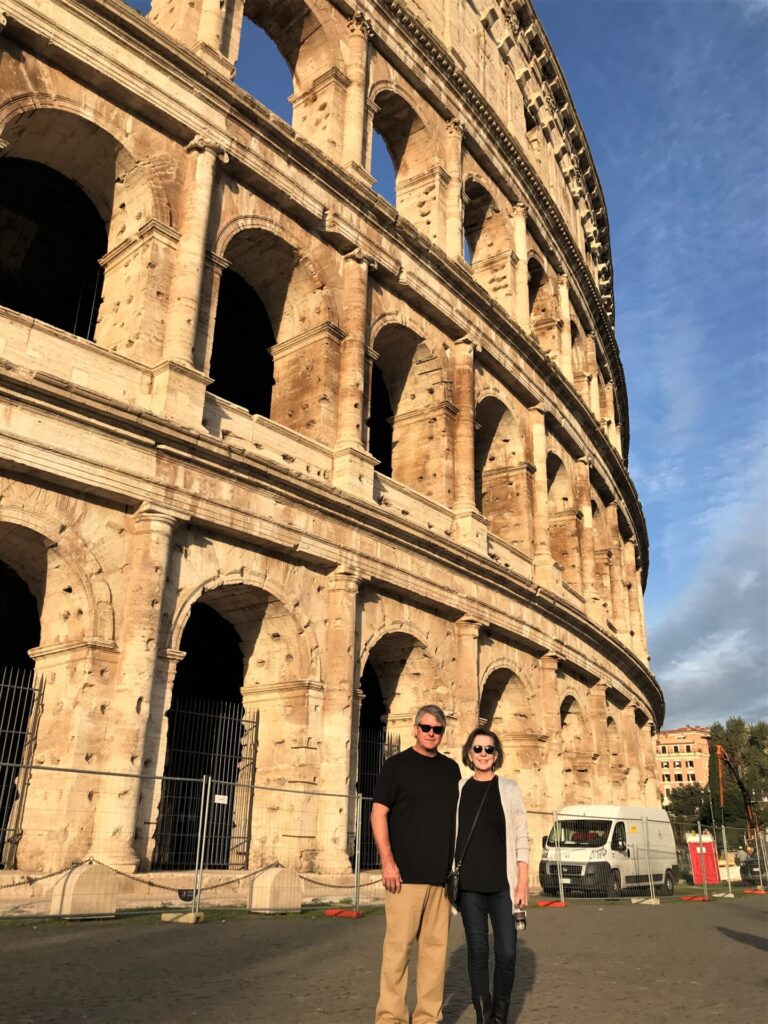
Brown: Tell us about your children, where they are and what they are doing.
Bell: Between us, we have three children: Lindsay Bell Weixler, my daughter, is a research professor in the psychology department at Tulane. She and her husband, Jake, also a lawyer, have two children, Julia (6) and Paul (3). We make it to New Orleans at least once a month to see them. Neil White, IV, Neil’s son, and his wife Rachel are professors of economics (Neil) and geology (Rachel) at Amherst College and have a child, Harriet, who is 18 months old. We were so desperate to see her during Covid that we took a train to New Jersey, rented a car, and drove to Amherst. What we do to see our grandchildren! Maggie White, Neil’s daughter, has been in New Orleans working in the Tulane Business School until recently. She and her partner David (an improvisational teacher and coach) are embarking this month on an adventure in Glasgow, Scotland, where she will study fantasy literature in the Glasgow University Master’s program.
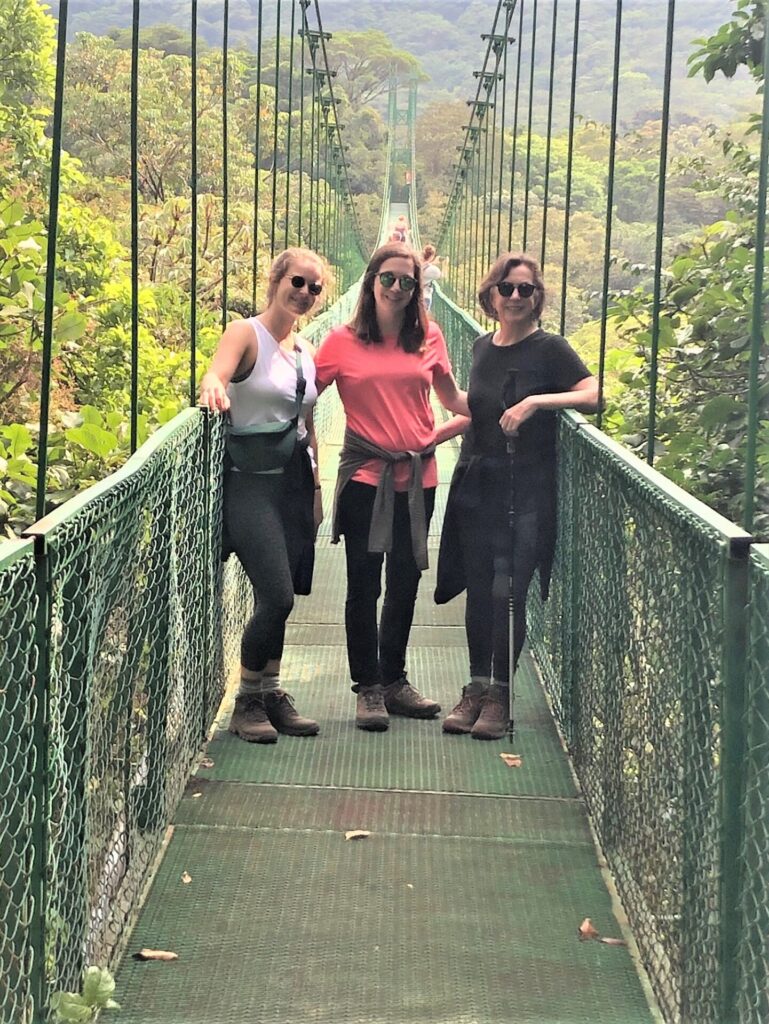
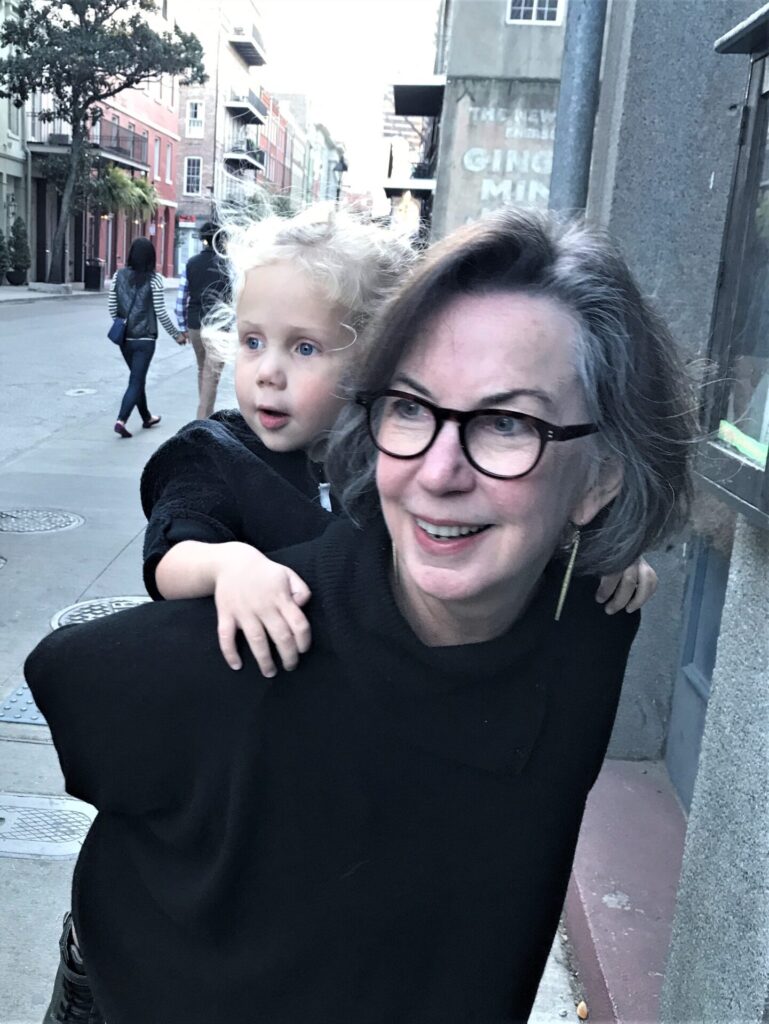
Brown: What is your favorite family vacation?
Bell: Every year that we can, we rent a house at Walloon Lake in upper Michigan, for all the children, spouses, and grandchildren. Neil’s family has been going there for generations and our grandchildren are the sixth generation to vacation there. It is so quiet and beautiful. The lake is clear and deep and over 100 feet at its deepest.
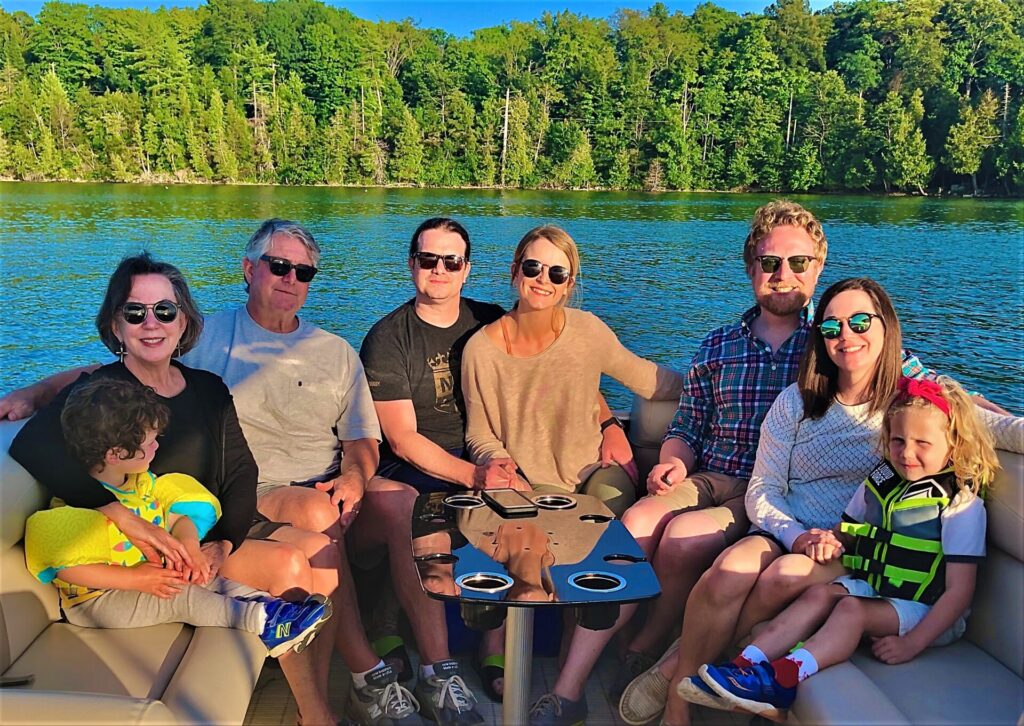
Brown: What advice would you give to your 20-year-old self?
Bell: Everything changes. Good times will not last forever, so make the most of them. Hard times will pass, endure through them.
Brown: If your life were a book, what would be the title of the current chapter?
Bell: Always We Begin Again, with a nod to John McQuiston.
Brown: If you were a superhero, what powers would you wish to have?
Bell: Flying. I’ve had flying dreams since I was a child. But I want the kind of flying power that involves soaring. Not the kind where you struggle to get off the ground, float down, and struggle up again. I like the soaring dreams better.
Brown: What’s your favorite way to waste time?
Bell: Sitting on my screened porch, looking at the meadow, and watching birds at the feeder.
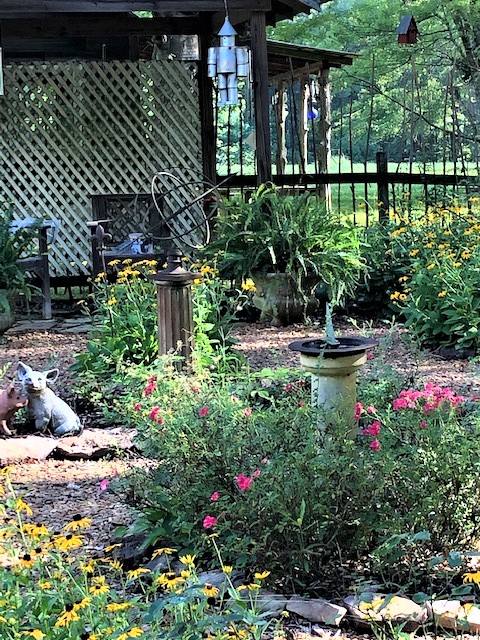
Brown: List two pet peeves.
Bell: People driving behind me on my bumper. I’ve been known to pull to the side of the road, roll down the window, and exaggeratedly wave them past.
Brown: Aside from necessities, what one thing could you not go a day without?
Bell: Time outside and coffee.
Brown: What makes you roll your eyes every time you see/hear it?
Bell: Over-the-top self-importance.
Brown: What habit do you have now that you wish you started much earlier?
Bell: Mediation and contemplative prayer.
Brown: What has been your routine since retirement? Do you have any hobbies?
Bell: As it turns out, my retirement has been retirement from the state system, but not from working. I still teach one class in family law. I also regularly update my book on family law, provide continuing education programs for lawyers in family law, and consult on family law cases. I mediate family law disputes as well. It is enough to be busy when I want, but not to feel overwhelmed (and to leave plenty of time for travel and grandchildren!). We spend about a third of our time in New Orleans or traveling elsewhere, so when we are in Oxford, I am working regularly.
Brown: What remains on your bucket list?
Bell: Not much! I had two trips on my bucket list when I retired in 2018. Luckily I got them both in before Covid. I spent a month in Italy, mostly in the area around Florence. Neil joined me for 10 days in Rome and Florence. Assisi was my favorite spot. One Saturday, I went to the cave above Assisi where St. Francis went to retreat. For some reason, no one else was there, so I had an uninterrupted half-hour in his cave alone.
I went to Costa Rica for two weeks in 2019 with Lindsay and Maggie. We ziplined in the tree canopy, hiked, saw a lot of wildlife, and stayed in a treehouse in the cloud forest. I am so glad I got that trip in with my daughters!
Right now, I mostly want time with my grandchildren. But I would like to go back to Italy to Lake Como and to the Amalfi Coast with Neil.
Brown: What story do you want people to tell about you? What impact will you leave behind?
Bell: I’m not sure many of us leave a lasting impact on the world except on the people we interacted with. I hope that some of those people will remember that there was a day when something I did or said made their life easier or their path more clear. I hope that an equal number will realize that something they did made my life better.
Bonnie Brown is a retired staff member of the University of Mississippi. She most recently served as Mentoring Coordinator for the Ole Miss Women’s Council for Philanthropy. For questions or comments, email her at bbrown@olemiss.edu.
